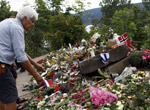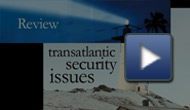There are significant differences in the modus operandi between these groups. For each of its attacks, the Red Army Faction wrote long letters explaining why their assault on high-ranking political or business figures had been executed. Al Qaida leader Osama bin Laden also regularly explained himself in video clips and justified operations against the ‘unbelievers’.
And Islamist terror attacks remain a threat too in Germany. In September 2007, three Islamists were arrested in Sauerland, North Rhine Westphalia. They were planning terror attacks against locations of US-Forces around Frankfurt. The group was recruited in Germany, sent to a Pakistan training camp of the ‘Islamic Jihad Union’, and received orders from this Union directly via internet communication. More recently, in April 2011 - one day before bin Laden was killed – members of an independent al Qaeda cell were arrested in Düsseldorf and Bochum .
But the Zwickau neo-Nazis never gave a political motivation for their crimes, and right-wing extremists were also kept out of the frame. As a result, there could be no copycats, no public supporters. And there was no way of gauging the public reaction to the attacks.
The trio seemed content with the knowledge of what they had done. Maybe their personal ‘triumph’ was the fact that they could operate and kill innocent people for nearly 10 years undiscovered. The group’s silence was a sort of survival guarantee.
Nobody knows if the trio had indeed gathered a group of supporters and was planning further attacks. The only person who could provide information about what happened is last surviving member of the Zwickau group, Beate Tschäpe.
But she isn’t talking.























